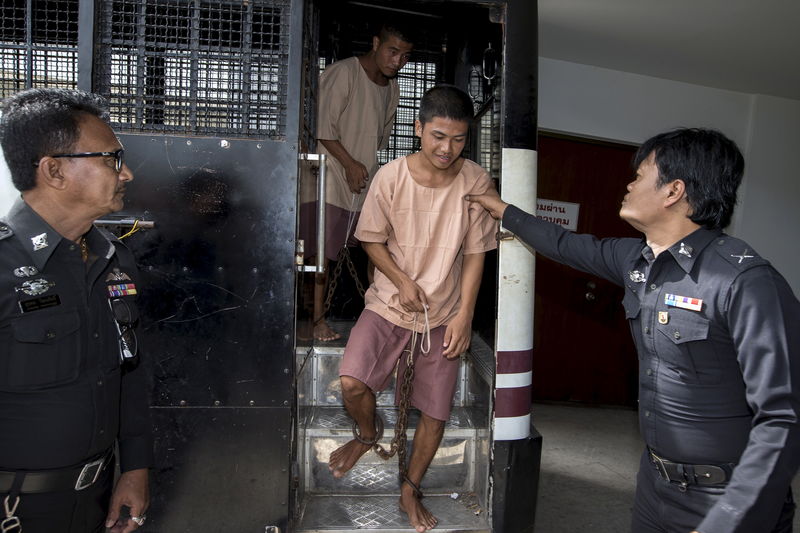BANGKOK (Reuters) - A Thai court has given defense lawyers access to evidence for DNA testing in the trial of two Myanmar workers accused of murdering two British tourists in Thailand, a defense lawyer said on Friday.
The investigation has been dogged by allegations of police incompetence and mishandling of evidence, with rights groups saying the accused men are being used as scapegoats since they are foreign migrant workers in Thailand.
British tourists Hannah Witheridge, 23, and David Miller, 24, were killed last September and their bodies were found on a beach on Koh Tao, an island in the Gulf of Thailand popular with backpackers and divers.
Post-mortem examinations showed both suffered severe head wounds and Witheridge was raped.
The defense team for the men accused of the crime, Win Zaw Htun and Zaw Lin, both aged 22, says police analyses of DNA samples found at the scene are the only evidence tying them to the crime, making retesting of the material crucial.
Among the evidence available for restesting were a garden hoe allegedly used as the murder weapon, blood found in the sand at the murder scene, shoes and hair samples, said lead defense lawyer Nakhon Chompuchat.
"The court said that lawyers are free to request all the DNA samples for independent DNA testing at anytime," Nakhon told Reuters, adding that a forensic expert testified that DNA swabs from the crime scene had been duplicated in a laboratory, so samples were still available.
"Now we must decide what to re-test."
On Thursday, police forensic expert Kewalee Chanpan told a court on Samui island, site of the trial, that all genetic material tested in a lab was replicated and saved, but that it deteriorated over time.
Police had issued conflicting statements about the DNA, including that some was lost or "used up". They later took back that statement, saying DNA samples had not been lost.

The murder trial resumed on Wednesday, when the court heard how the British pair were tracked by more than a dozen security cameras during their final hours.